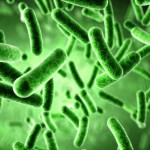 New collaborative research from Harvard and Massachusetts General Hospital has shown that the gut microbes of mice undergo drastic changes following gastric bypass surgery. These microbes were taken from post-surgery mice, and then transferred into sterile mice (who did NOT undergo gastric bypass). In fascinating results, the researchers saw rapid weight loss in the mice who did not have surgery – but only received a transplant of microbes. This early research is pointing to the potential for a new method of inducing weight loss in people. While there had been hints that the microbes in the gut might change after gastric bypass, the speed and extent of the change came as a surprise even to the research team. In earlier experiments, researchers had shown that the guts of both lean and obese mice are populated by two types of bacteria, called Firmicutes and Bacteroidetes. When mice undergo gastric bypass surgery, however, it “resets the whole picture,” the researchers said. After surgery, the gut is dominated by Proteobacteria and had relatively low levels of Firmicutes. The changes were observed as early as one week after surgery and remained stable for months afterward.
New collaborative research from Harvard and Massachusetts General Hospital has shown that the gut microbes of mice undergo drastic changes following gastric bypass surgery. These microbes were taken from post-surgery mice, and then transferred into sterile mice (who did NOT undergo gastric bypass). In fascinating results, the researchers saw rapid weight loss in the mice who did not have surgery – but only received a transplant of microbes. This early research is pointing to the potential for a new method of inducing weight loss in people. While there had been hints that the microbes in the gut might change after gastric bypass, the speed and extent of the change came as a surprise even to the research team. In earlier experiments, researchers had shown that the guts of both lean and obese mice are populated by two types of bacteria, called Firmicutes and Bacteroidetes. When mice undergo gastric bypass surgery, however, it “resets the whole picture,” the researchers said. After surgery, the gut is dominated by Proteobacteria and had relatively low levels of Firmicutes. The changes were observed as early as one week after surgery and remained stable for months afterward.
In the study, the mice that received the microbes achieved weight loss of about 20 percent as much as they would if they had bypass surgery. But the researchers question whether they would have observed even more weight loss if the mice used in the study were first fed a high-fat, high-sugar diet to increase their weight beforehand. Lee Kaplan, director of the Obesity, Metabolism and Nutrition Institute at Massachusetts General Hospital said, “Our study suggests that the specific effects of gastric bypass on the microbiota contribute to its ability to cause weight loss and that finding ways to manipulate microbial populations to mimic those effects could become a valuable new tool to address obesity.” He added that we now need to learn more about the mechanisms behind the changes. The authors stressed that the technique may one day offer hope to dangerously obese people who are unwilling or unable to have surgery, and should not be viewed as a way to lose those stubborn last 10 pounds.
“This area of research into the link between gut bacteria and obesity is fascinating, and this study sheds light that this is one of the potential mechanisms of weight loss after gastric bypass surgery: changes in gut biota”, says Dr. Emma Patterson. “It also reinforces that obesity is not a choice, and as much as we should all eat healthy and exercise, these two activities are not the only determinants of our body fat or weight”, says Patterson.
Related Reading: Microbes and Obesity: What is the Connection?






Weight Loss Studies & Clinical